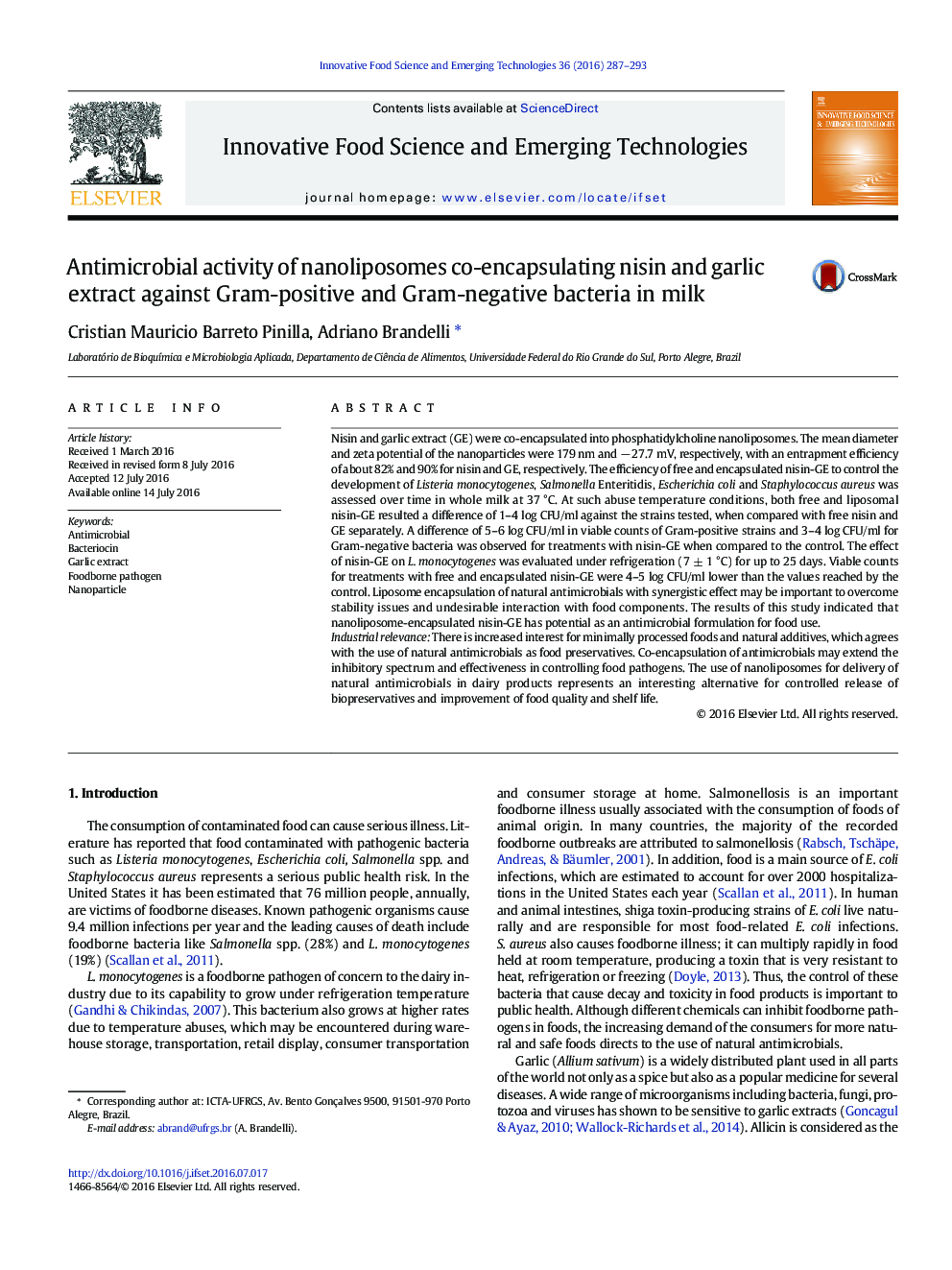| کد مقاله | کد نشریه | سال انتشار | مقاله انگلیسی | نسخه تمام متن |
|---|---|---|---|---|
| 2086337 | 1545530 | 2016 | 7 صفحه PDF | دانلود رایگان |
• Nisin and garlic extract were co-encapsulated into liposomes.
• Nanoliposomes with mean diameter of 179 nm were obtained.
• Nanoliposomes inhibited L. monocytogenes, S. aureus, E. coli and S. Enteritidis in milk.
• Combination of natural antimicrobials and nanotechnology may be useful to control food pathogens.
Nisin and garlic extract (GE) were co-encapsulated into phosphatidylcholine nanoliposomes. The mean diameter and zeta potential of the nanoparticles were 179 nm and − 27.7 mV, respectively, with an entrapment efficiency of about 82% and 90% for nisin and GE, respectively. The efficiency of free and encapsulated nisin-GE to control the development of Listeria monocytogenes, Salmonella Enteritidis, Escherichia coli and Staphylococcus aureus was assessed over time in whole milk at 37 °C. At such abuse temperature conditions, both free and liposomal nisin-GE resulted a difference of 1–4 log CFU/ml against the strains tested, when compared with free nisin and GE separately. A difference of 5–6 log CFU/ml in viable counts of Gram-positive strains and 3–4 log CFU/ml for Gram-negative bacteria was observed for treatments with nisin-GE when compared to the control. The effect of nisin-GE on L. monocytogenes was evaluated under refrigeration (7 ± 1 °C) for up to 25 days. Viable counts for treatments with free and encapsulated nisin-GE were 4–5 log CFU/ml lower than the values reached by the control. Liposome encapsulation of natural antimicrobials with synergistic effect may be important to overcome stability issues and undesirable interaction with food components. The results of this study indicated that nanoliposome-encapsulated nisin-GE has potential as an antimicrobial formulation for food use.Industrial relevanceThere is increased interest for minimally processed foods and natural additives, which agrees with the use of natural antimicrobials as food preservatives. Co-encapsulation of antimicrobials may extend the inhibitory spectrum and effectiveness in controlling food pathogens. The use of nanoliposomes for delivery of natural antimicrobials in dairy products represents an interesting alternative for controlled release of biopreservatives and improvement of food quality and shelf life.
Journal: Innovative Food Science & Emerging Technologies - Volume 36, August 2016, Pages 287–293
